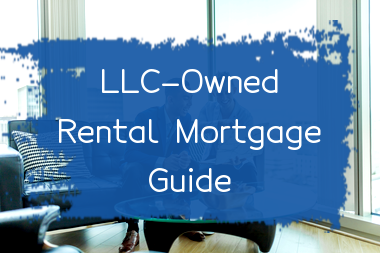- 1. Check your credit score and financial history: To get a mortgage for an LLC-owned rental property, the owner's credit score and financial history must be excellent.
- 2. Find a lender: Look for a lender who provides loans to LLCs for rental properties. The loan terms, rates, and fees should be reasonable.
- 3. Prepare the LLC's financials: Get the LLC's financial statements, like income statements and balance sheets, ready to show to the lender.
- 4. Get pre-approved: Get pre-approved for a mortgage. This will help you narrow down your search and let the lender know that you are a serious buyer.
- 5. Provide documentation: You will need to provide tax returns for the LLC, personal guarantees by the LLC owners, and the LLC's legal documents to the lender.
- 6. Make a down payment: The down payment for rental properties is generally higher than for a primary residence. Plan on putting down at least 20%.
- 7. Close the deal: Once the loan is approved, you can close the deal and take possession of the rental property.
- 8. Maintain good financial standing: Keep your finances in good standing, make timely mortgage payments, and maintain the rental property to ensure its value increases over time.
What's an LLC? Do I need one?
An LLC (Limited Liability Company) is a type of business entity that offers personal liability protection to its members. This means that the owners or members of the LLC are not personally responsible for the debts and lawsuits of the business.
In an LLC, the company's profits and losses pass through to its members, who report them on their individual tax returns. LLCs can be run by one or more owners, known as members, and there are no restrictions on the type of business that can form an LLC.
Whether or not you need an LLC depends on your specific business needs. If you are starting a small business or a side hustle and want to protect your personal assets from any potential legal issues related to that business, then forming an LLC may be a good idea. It can also provide credibility and legitimacy to your business. However, if you are not concerned about personal liability for your business or you have a high-risk profession, such as a doctor or lawyer, you may need to consider forming a corporation instead. It is recommended to consult with a legal or financial professional to determine the best business structure for your specific needs.
Options for a rental property LLC mortgage
Here is the possible answer to your query:
When it comes to getting a mortgage for a rental property LLC, there are several options available, such as:
- 1Traditional bank mortgage: This would be a regular mortgage that you would get from a bank or a lending institution. However, the loan will be secured under the LLC rather than under your name. The lender will require that your LLC has a good credit score and a healthy financial statement.
- 2Cash-out refinance: Refinancing your rental property via an LLC could be a useful way to tap into your propertys equity. You will need to have equity in the property to be eligible for this type of refinance.
- 3Hard money loan: Hard money loans are primarily for those who cant qualify for traditional bank loans. These loans are generally more expensive and have higher interest rates. The lender will consider the propertys value and rental income rather than the borrower's credit score.
- 4Commercial real estate loan: Commercial real estate loans are designed specifically for LLCs and offer the flexibility to finance multiple rental properties. The borrowing capacity will depend on the rental income the properties are generating.
In summary, the best option for rental property LLC mortgages will depend on your financial situation and your investment goals. It's wise to consult with a financial advisor or a mortgage broker before selecting a mortgage.
Liability for defaults on loans under LLCs
LLCs (Limited Liability Companies) provide limited liability protection to their owners, also known as members. In general, members are not personally liable for the debts and obligations of the LLC, unless they choose to personally guarantee the debts or engage in wrongful conduct.
However, the liability for defaults on loans under LLCs may vary depending on the type of loan, the terms of the loan agreement, and the laws of the state where the LLC is registered.
If the LLC has taken out a secured loan, where collateral is used to guarantee repayment, the lender may be able to seize the collateral in case of default. In such cases, the members of the LLC would not be personally liable for the debt beyond the value of the collateral.
On the other hand, in case of an unsecured loan, where no collateral is used, the lender may pursue legal action against the LLC to recover the unpaid amount. If the LLC is unable to pay, the members may be held responsible for the debt, up to the amount of their investment in the LLC.
Moreover, if the members of the LLC have personally guaranteed the loan, they may also be held liable for the debt in case of default.
In summary, while LLCs provide limited liability protection, the liability for defaults on loans under LLCs may vary depending on the type of loan, the terms of the loan agreement, and the laws of the state where the LLC is registered. It is advisable to consult with an attorney and carefully review the loan agreement before signing to understand the potential risks and liabilities.
Before applying for a rental property LLC mortgage
Before applying for a rental property LLC mortgage, it is important to know the following key factors:
- 1Real estate investment experience: Lenders will typically prefer borrowers who have experience managing rental properties as they are likely to have a better understanding of the risks and challenges of real estate markets and property management.
- 2LLC structure: If you're purchasing the rental property through an LLC, you must ensure that your LLC has been set up correctly, has proper documentation, and complies with local and state laws to facilitate access to loans.
- 3Personal credit history: Personal credit history may be considered by lenders when assessing your eligibility for a rental property LLC mortgage. It is important to review your credit report and ensure your credit score is strong and doesn't contain any errors.
- 4Debt-to-income ratio: Lenders will consider your debt-to-income ratio, which is the percentage of your income that goes towards debt payments, including student loans, car loans, credit card debt, and other mortgages, when evaluating your eligibility for a rental property mortgage.
- 5Investment property analysis: Before applying for the rental property LLC mortgage, it is essential to have done a thorough financial analysis of the investment property. You should have a full understanding of the current market value and potential rental income to ensure that the rental property is a solid investment.
By knowing these key factors, you can improve your chances of getting approved for a rental property LLC mortgage and acquiring a profitable rental property.
Remember to keep a cash cushion.
I can provide you with the following information on why it is important to keep a cash cushion:
A cash cushion is essentially an emergency fund that a person or business keeps on hand to cover unexpected expenses or financial setbacks. Here are a few reasons why it's important to have a cash cushion:
- 1It helps you avoid debt: When unexpected expenses arise, not having enough cash on hand can lead to taking on debt, which can add up quickly and become difficult to pay off. Having a cash cushion allows you to avoid this scenario and maintain financial stability.
- 2It provides peace of mind: Knowing that you have money set aside for emergencies can give you peace of mind and reduce stress levels. It also allows you to focus on achieving your long-term financial goals without worrying about unexpected roadblocks.
- 3It helps with cash flow management: A cash cushion can help you manage cash flow fluctuations, especially if your income is irregular or if you run a small business. This can help you avoid cash flow problems that could interfere with business operations.
- 4It allows you to take advantage of opportunities: Having some cash on hand can allow you to take advantage of unexpected opportunities that come your way, whether it's investing in the stock market or purchasing a new piece of equipment for your business.
Overall, keeping a cash cushion is an important aspect of personal and financial management. It provides security and stability, and can help you achieve your long-term financial goals.
Just one more thing: if you liked the article, please like us on social media and share this article with friends.



